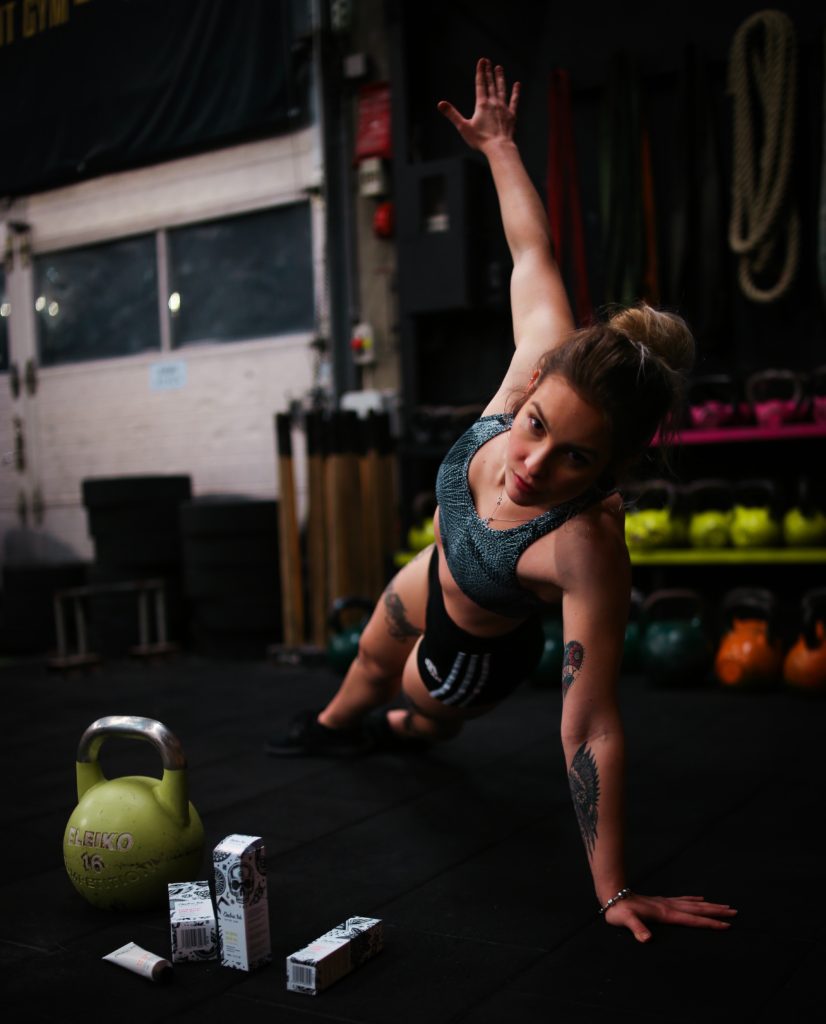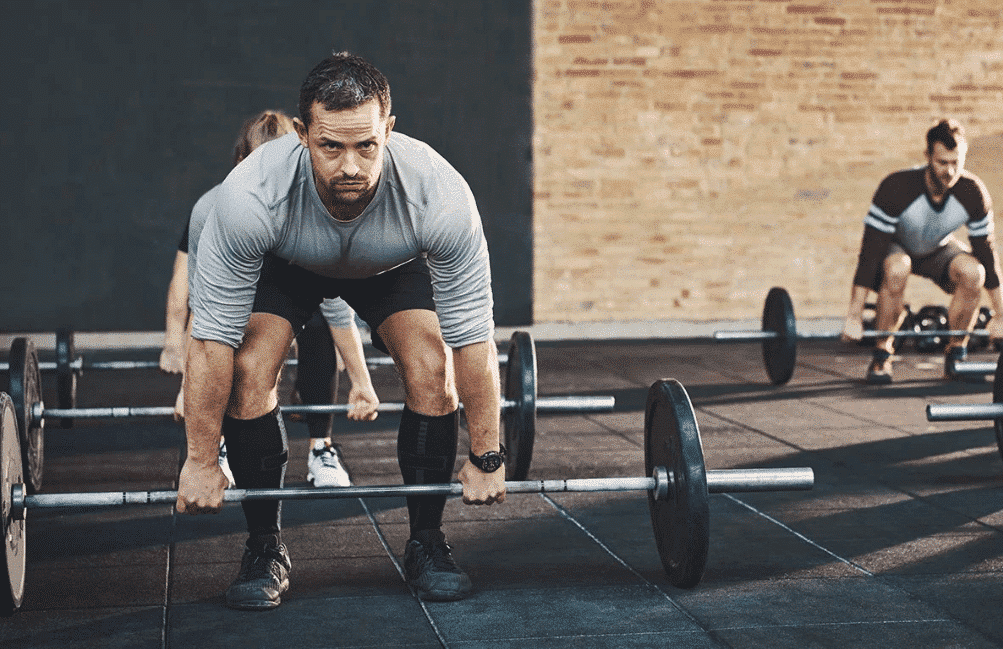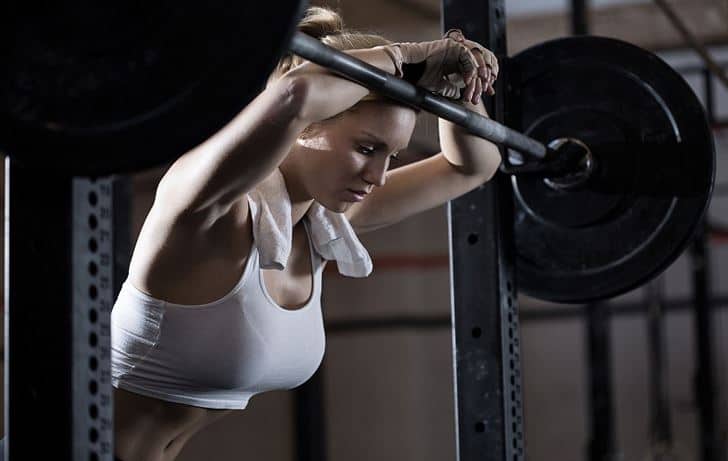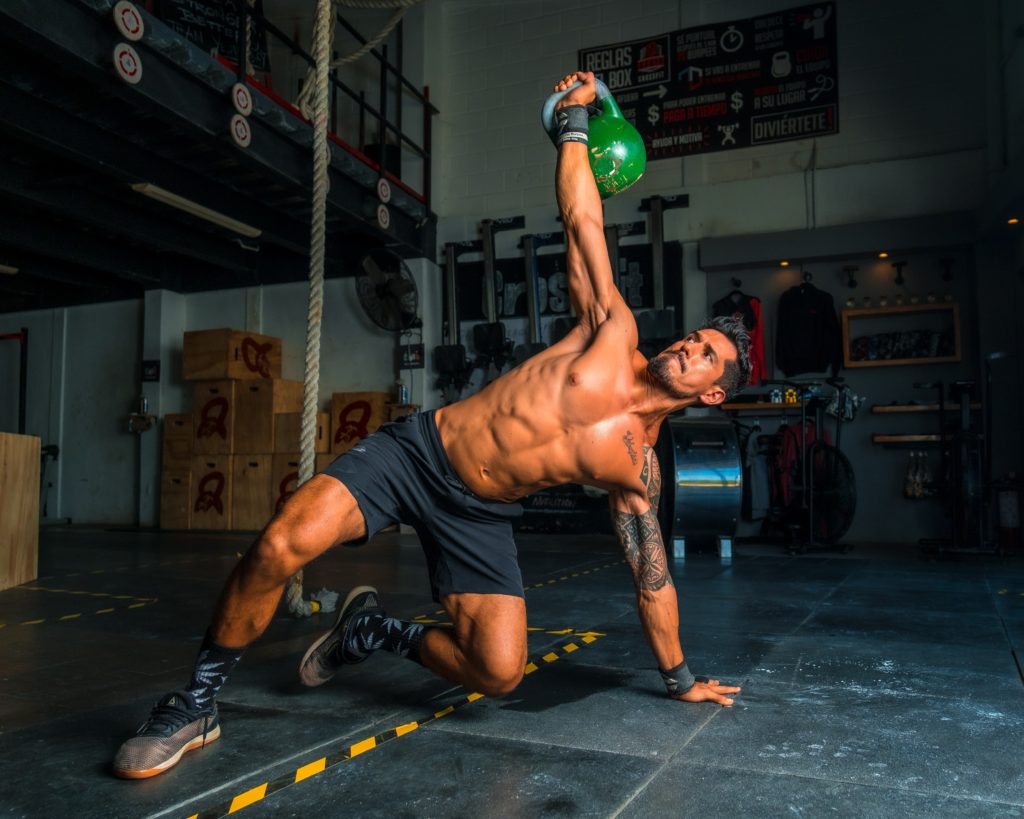Total Body Workouts
In What Order Do I Do A Full Body Workout?
You and I both know it’s true. Pretty much everyone and their kettlebell believes their way to lift weights is the only way.
But there is something I think the majority agrees upon when it comes to lifting. The way you order full body workouts. Check it out for yourself. You’ll see that total body workouts are usually organized the same way. Whether they’re done with kettlebells, barbells, or machines.
It’s been around forever and it’s the same way everyone from Eugene Sandow to Steve Reeves and Arnold Schwarzenneger trained at one time or another.
In the next section, I’ll show you what order to do a full body workout using this traditional arrangement. It’s tried and true having helped millions of guys and girls get stronger and fitter. Whether you’re a beginner or have been lifting for decades it’ll work for you.
Even though it works, I’m not stopping there. You’ll also learn several other ways to structure your total body workout. Each way focuses on specific workout goals.
Okay that’s more than enough of an introduction. Let’s get into what you’re here to learn. In what order you should do your full body workouts.
What order do I do a full body workout?
When creating a full-body workout using the traditional method you order the exercises from the largest to smallest muscle groups.
So your workout will look like this:
- Leg exercises
- Back exercises
- Chest exercises
- Shoulder exercises
- Arm exercises
- Abdominal and core exercises
The theory for this is easy to understand: since you have the most energy at the beginning of your workout, use it to tackle the most demanding exercises like squats for your legs or dips for your chest. As you progress through your workout you move to the smaller muscles that require less energy and effort – like your arms and abs.
Here’s an example of a full body workout sequence. The second column shows which muscle groups each exercise trains. The muscle listed first is the main muscle or group of muscles that you’re working when you do the exercise.
Traditional Order Of Exercise For A Full Body Workout
| Exercise | Primary Muscles Trained |
| Squats | Legs – hamstrings/glutes, quads, core |
| Dips | Chest muscles, triceps, shoulders |
| Rows | Upper back, lats, biceps |
| Overhead Press | Shoulders, triceps |
| Biceps Curls | Arms – biceps and forearms |
| Planks | Core – abdominals, lower back |
| Calf Raises | Legs – calves |
Despite being a leg exercise, calf raises come last due to the calves’ being a small muscle that doesn’t take a lot of energy to train. But don’t skip training them. No one wants to see small calves.

Your Workout Order Isn’t Just About Muscle Groups
The hardest to easiest logic extends to the equipment you’re using and exercises you do.
Here’s what I mean.
Regarding equipment: do your exercises that use free weights – barbells, kettlebells, dumbbells, etc. first. Then do any exercises that use a machine like lat pulldowns or seated rows. Body weight exercises are done last.
When it comes to exercises you’ll order your workout so that compound exercises, i.e. those that work multiple muscle groups (kettlebell swings, squats, lunges, presses, and rows) are done first.
Once they’re done you progress to isolation exercises (planks, triceps extensions, lateral raises, biceps curls, calf raises, etc.).
There you have it. You now know how to order a full body workout using the traditional, and very effective method of largest to smallest muscles. Remember that rules can be broken, including this workout order. Stay tuned as I show you how to do so for different workout goals.
Other Ways To Order A Total Body Workout
The rest of this article shows you alternative ways to organize this style of training. I’ll focus on workouts for 5 of the most common things we’re likely to be training to improve. While each workout is more focused on a specific thing like upper body strength and development they still train every major muscle group. There’s just more emphasis on some muscles than others.
They are:
- Increasing upper body strength and muscle mass
- Lower body strength and lean muscle
- Total body strength and power
- Building a stronger ‘core’
- Workouts to build cardio and strength-endurance
I’ll also include exercise for each type of workout.
Alternative 1: Total Body Workout With Upper Body Emphasis
If your aim is to build upper body strength and muscle mass, you’ll include more exercises for those muscles than your legs and core. You’ll also do the upper body exercises first, going from the largest to smallest muscle groups.
After you’ve done the upper body part of your workout, do 1-2 lower body focused exercises.
In addition to doing them last. It’s also a good idea to do less sets for the lower body exercises at a lower intensity than upper body.
| Exercises | Muscles Trained |
| Bent over row | Back, biceps, forearms |
| Floor press | Chest, triceps |
| Pull Ups | Back, biceps, forearms |
| Standing overhead press | Shoulders, triceps |
| Biceps curls/Triceps extension super set | Biceps, triceps |
| Split squats | Quadriceps, hamstrings, glutes |
Alternative 2: Full Body Workout Order With Emphasis On Your Legs
In this case your workout will be 70-80% lower body exercises and 20-30% upper body and core movements. Do 3-5 sets of each lower body exercise and really push hard with every lower body movement.
When it comes to your upper body and core, keeping it to 2 sets of each exercise with a weight is moderately challenging.
Here’s an example that shows how you can structure a total body workout that’s focused on building your legs.
| Exercises | Muscles Trained |
| Front squats | Quadriceps, glutes, hamstrings |
| Romanian deadlifts | Hamstrings, glutes, lower back |
| Lateral lunges | Quadriceps, glutes, hamstrings, abductors |
| Windmills | Core, shoulders, back, triceps, biceps |
| Pull-ups | Back, biceps, forearms |
| Dips | Chest, triceps, shoulders |

Alternative 3: Full Body Workout With A Focus On Strength And Power
Targeting overall strength and power requires a workout centered around compound exercises that engage various muscle groups.
When designing a total body workout with this goal in mind you’ll first pick 1-2 exercises that will help increase your strength and power. The movements train multiple large muscle groups which allows you to use the heaviest weights.
This table shows some of the more popular exercises used to build total body strength and power and the order you can do them in.
Strength And Power Total Body Exercises
| Exercises | Muscles Trained |
| Power cleans | Back, quads, hamstrings, glutes, core, biceps |
| Clean and press | Back, glutes, hamstrings, quads, biceps, triceps |
| Snatch | Quadriceps, hamstrings, glutes, shoulders, core |
| Squats | Quadriceps, hamstrings, glutes, core |
| Push press | Shoulders, triceps, core, glutes, hamstrings |
Once you’ve chosen your strength/power exercises you’ll fill in the rest of the workout with exercises to make sure you’re training every muscle as equally as possible.
Here’s one way to organize this total body workout.
Strength/Power Focused Total Body Workout
| Exercises | Muscles Trained |
| Power Cleans | Back, quads, hamstrings, glutes, core, arms |
| Front Squats | Quadriceps, hamstrings, glutes, core |
| Dips | Triceps, chest, shoulders |
| Pull Ups | Back, biceps, forearms |
| Lateral Raises | Shoulders |
| Kettlebell Halos | Core, upper back |
Alternative 4: How To Order A Core Focused Total Body Workout
If strengthening your core (abs, lower back, etc.) is your goal, do the exercises that engage your core first. When you choose the right exercises they’ll also train the rest of your body.
Make sure your core exercises train these muscles from every angle. This means those that resist rotation and the muscles that help you rotate from the waist.
In the workout below I’d do 3-4 sets for the core focused exercises and 1-2 sets each when training arms and calves.
Full Body Workout That’s Focused On Your Core
| Exercises | Muscles Trained |
| Halos | Core, shoulders, upper back |
| Renegade rows | Core, back, biceps |
| Rotational split squats | Core, quads, hamstrings |
| 1 KB floor press | Chest, triceps |
| Biceps curls | Biceps |
| Triceps extension | Triceps |
| Calf raises | Calves |

Alternative 5: Total Body Workout Order For Cardio And Strength Endurance
When I’m doing any type of circuit full body workout I alternate between upper and lower body exercises. Why? There are two reasons. First of all it makes the workout much tougher and better at improving my cardio.
The second reason is that switching between upper and lower body movements gives each group more rest. This way I can use heavier weights for greater gains in strength and endurance. Think of this as being able to still lift heavy weights and recover faster between sets when you’re fatigued.
I use the same number of sets for each exercise when I train this way. I also don’t rest between sets to make it better for improving my cardio.
Total Body Circuit Workout For Endurance And Strength
| Exercises | Muscles Trained |
| Standing halos | Deltoids, traps, rotator cuff |
| Bent over rows | Back, biceps |
| Lunges | Quads, hamstrings, glutes |
| 1 KB floor press | Chest, triceps |
| Overhead press | Shoulders, triceps |
| Hammer curls | Biceps |
| Lying triceps extensions | Triceps |
Remember to alter your routines every 4-8 weeks for effective results and to keep your workouts exciting and fresh.
There’s More Than One Way To Do Full Body Workouts
And you know 6 that are proven to work. You also know how to arrange your exercises and when to do free weight, machine, and body weight movements. Give each a try for 2-3 months to see how they work for you. You should also try a 3 exercise kettlebell workout we’ve published. It’s great to do when you’re pressed for time but still want to get in a great workout.
Make sure you track every workout with a weight training log. You can use anything: pen and paper, apps, spreadsheets, etc. Use the back of an envelope if you have to. I personally use a workout tracker that I developed to work with Google Sheets ™. It has all of the features of the best apps with accessibility and layout of a spreadsheet. Learn more about it here.

